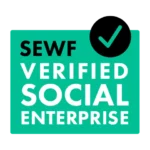On Thursday, 18 November 2021, I had the pleasure of interviewing Brian Iselin, founder of Slave Free Trade, based in Switzerland and Sweden.
Brian revealed the great opportunities that abound for those who are serious about resourcing the ‘demand’ side of modern slavery and human trafficking intervention. That is: organisational purchases and individual consumers.
Arising from the UN Palermo Protocols in 2000, most of the resources are focussed on the protection, prosecution and prevention of human trafficking. And whilst we don’t want to detract from the tremendous work that is being done to address the ‘supply’ side, much more needs to be done to curb the ‘demand’ side. This view accord with the own doctoral research completed in 2016, in which I investigated the male demand for sexual services that give rise to human trafficking into the sex industry in Europe.
Brians passion is matched with the seriousness that he has made to personally invest in increasing the transparency in the supply of goods and services, and empowering consumers to make responsible choices.
The three key takeaways from out time together:
1. Think about the Third Track: Business leaders, especially those at the forefront of procurement decision makings, need to think about the third track of decision making. Alongside quality and price, think about human rights. From Brian’s perspective, responsible sourcing shouldn’t cost the consumer more. Paying all employees a fair wage would hardly put a dent in the profits made by big corporates.
2. Protecting Human Rights is Your Issue, not just someone else’s. Business leaders need to locate themselves within the context of human rights; to locate yourself as part of the problem, then you will unlock the ideas to address it fully. It needs to become part of the DNA of doing business; part of business as usual.
3. Join slavefreetrade International: It’s a global movement that’s going to take a global response: from consumer, to buyer, retailer, to logistics, to supplier, to maker, to make a lasting difference.





